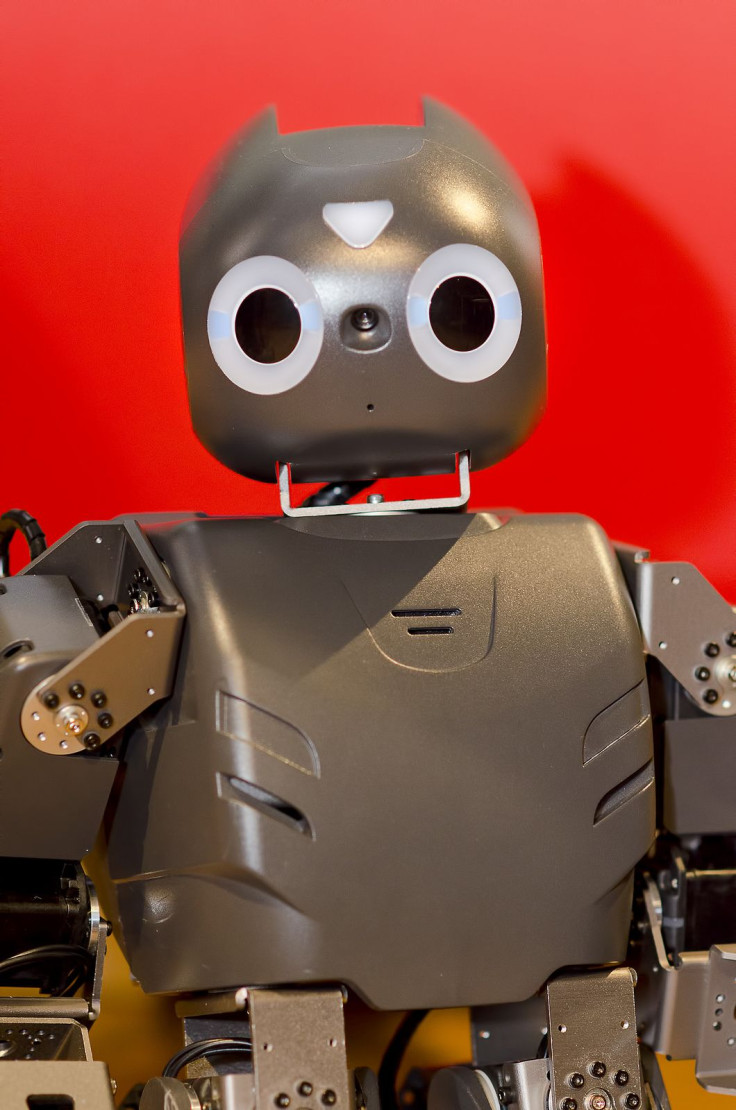Robots Sniff Breath, Smell Feet; Japanese Researchers Develop Technology To Assist Elderly [VIDEO]

As Japan's population ages and becomes more reliant on robots for the care of elderly, roboticists continue to make advancements in technology to assist people in self-care and other tasks related to independent living.
The latest such advancements are two robots — one a humanoid female and another in the form of a dog — that are capable of sniffing a person's breath and foot odor, alerting the human "user" to unrecognized personal needs. The robots were developed by CrazyLabo and the Kitakyusha National College of Technology, both in Fukuoka Prefecture.
Kaori-chan is a girlish humanoid robot with brown hair and blue eyes. Upon blowing into her face, she analyzes the user's breath, evaluating the smell on a scale of one to four. Good breath "smells like citrus!" and bad breath elicits a "Yuck! You have bad breath!" For the foulest breath imaginable, Kaori-chan shouts, "Emergency! There's an emergency taking place! That's beyond the limit of patience!"
Lower to the ground, Shuntaro-kun is a dog robot capable of assessing the odor of a person's foot. His reactions run the gamut from cuddly acceptance to growling to...losing consciousness.
Manufacturer CrazyLabo drew from off-the-shelf odor sensing technology for monitoring and quantifying various airborne components, and decided to infuse the system with a sense of humor following the horror of the "Great East Japan Earthquake" of March 11, 2001. The company's president, Kennosuke Tsutsumi, 47, told media he'd visited the disaster region numerous times since then.
"I was left speechless," Tsutsumi said, describing a drive across northeastern Japan two months after the earthquake. The executive combined the newfound imperative for humor with complaints from family members about his chronically bad breath and odorous feet. He then met with a mechanical engineering professor at the Kitayusha National College of Technology, 32-year-old Takashi Takimoto. The professor and ten male students — a grouping which might explain the girlish form of the humanoid robot — then set to work. They repeatedly measured levels of odors using socks worn for two days, also consuming foods such as garlic and fermented soybeans for the breath test.
Within three months, they had a product, one that critiques a user's self-care habits. But what could be even weirder, even by the high bar set by Japanese roboticists? The company is developing a version of Pinocchio, from the classic 19th century children's tale, as a lie-detecting robot monitoring a user's brain waves. And, yes, his nose grows.
Below is a video from CrazyLabo:
Published by Medicaldaily.com



























